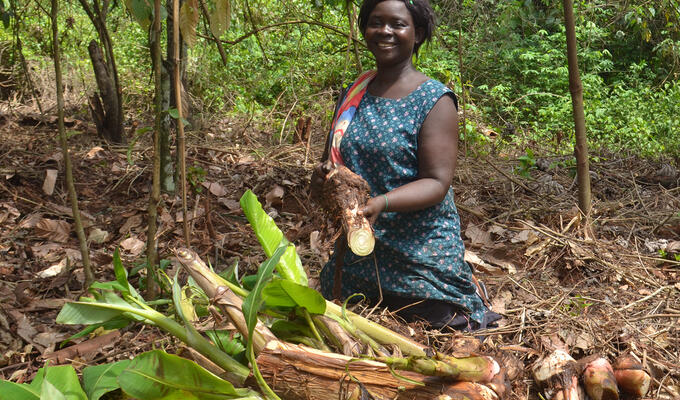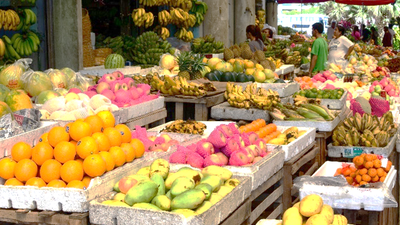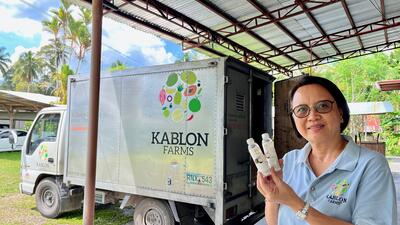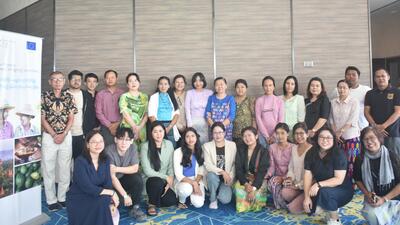


Regional trade integration
ITC’s work at the regional and inter-regional level seeks to strengthen regional trade through improved domestic regulatory, institutional and business environments.
Regional trade agreements expand markets within and outside the country, facilitate diversification and connect with regional value chains. This allows countries to become more competitive in regional and global trading markets and contributes to their economic resilience.
ITC supports policymakers in regional trade negotiations and policy reforms that best align domestic frameworks with regional commitments. ITC also builds up knowledge and capacity in the private sector on regional trade opportunities, identifies and addresses Non-Tariff Measures (NTMs) and enables better integration into regional value chains.
Strengthening regional trade integration
ITC supports strengthening regional integration and better leveraging the benefits of regional or continental trading arrangements.
ITC provides countries technical assistance to:
- analyse or review domestic frameworks in line with regional or continental commitments on trade-related issues from goods to e-commerce to investment and support implementation of policy reforms to address gaps;
- undertake country-level diagnostic assessments, develop roadmaps and monitoring frameworks for the implementation of policy reforms, and review or revise legislative and policy frameworks accordingly;
- capacitate policy officials and regulatory authorities to effectively implement regional commitments;
- engage in regional and continental trade negotiations on trade policy issues such as services, investment, e-commerce, intellectual property, competition, procurement, and develop negotiating positions and submissions;
- address barriers preventing businesses from effectively integrating into regional value chains;
- offer academic trade policy courses and training for country, regional and continent-level stakeholders on strengthening trade integration;
- Build up capacity of the private sector on regional or continental trade negotiations and policy formulation and implementation.
Making use of free trade agreements
ITC provides support for countries seeking to strengthen free trade agreements (FTAs) and negotiate and implement commitments that contribute to a cohesive trade environment.
In this context, ITC:
- Develops training and technical materials on emerging trends in FTAs and related trade policy issues;
- Facilitates the participation of public and private stakeholders in formulating positions and reviewing submissions during FTA negotiations;
- Carries out technical studies including assessments of potential FTAs to assist in developing negotiation strategies;
- Helps officials on trade negotiations through the development of related toolkits and technical briefing notes;
- Helps ensure domestic policies align with trade commitments.
Leveraging unilateral preferential market access
ITC supports developing countries and Least Developed Countries to leverage reduced duty or duty-free benefits of unilateral preferential market access schemes provided by various developed countries, referred to as Generalised Scheme of Preferences (GSP).
GSPs have their own sets of rules on the country and products covered, duration, rules of origin requirements labelling, packaging and restricted substances.
ITC provides support by:
- Awareness raising on the benefits of preferential market access schemes through business guides, training sessions and media campaigns to sensitize the private sector to the opportunities available, and any updates to the preferential schemes (such as the new European Union GSP formulation coming into effect in 2024);
- Advice and analyses for policymakers on eligibility of relevant countries to preferential market access schemes, and information on applying and aligning with such schemes;
- Support for monitoring efforts of preferential market access schemes, including export assessments and helping stakeholders monitor implementation of eligibility requirements.
Addressing Non-Tariff Measures
ITC helps countries address Non-Tariff Measures (NTMs). NTMs are policy measures, other than ordinary customs tariffs, that impact international trade. Reducing such measures can reduce the cost and time to export or import goods.
ITC supports countries by:
- Ensuring public and private stakeholders are informed and can participate in negotiations on cross-border NTMs;
- Providing Business Process Analysis (BPA) studies on select products or services to map export and import procedures, identify trade barriers and develop the regulatory and procedural recommendations to address them;
- Capacitating NTM focal points and regulatory authorities by developing guidelines and processes for reviewing NTMs and working towards their resolution;
- Providing training for national experts, regulatory authorities and NTM focal points on assessing and resolving NTM issues and conducting BPA studies;
- Engaging with the private sector to resolve export bottlenecks and with business associations to develop related policy positions.



















